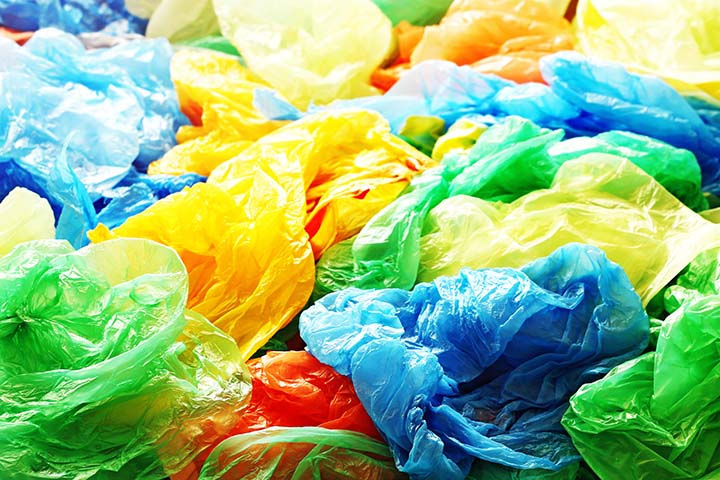Sustainability November 21, 2023
Colorado, Rhode Island Ramping Up Restrictions on Single-Use Plastic Bags in 2024
Some industry distributors believe this will create more chances to sell branded reusable totes.
Restrictions on single-use plastic bags are poised to intensify in Colorado and Rhode Island, and some promo pros see opportunity in that.
Centennial State Ban
Starting this year, a Colorado law compelled retailers to charge a 10-cent fee for every single-use plastic bag given to a customer – the aim being to encourage patrons to bring reusable bags to do their shopping.
Come January 2024, the prohibitions will ratchet up, with the law barring stores and some food establishments from buying new single-use plastic bags.

By June 1, the clampdown on single-use plastic bags will grip tightest: Stores will no longer be allowed to sell any of the bags to customers, though single-use paper bags are still allowed.
There are some exceptions: If a retailer has fewer than three locations and only operates in Colorado, it’s excused from the bag ban. Pharmacy plastic bags and plastic bags in the fruit and vegetable areas of groceries and other stores are permitted.
Ocean State Restrictions
According to Rhode Island’s Department of Environmental Management (DEM), 18 of the small coastal state’s 39 communities already have local restrictions on plastic bags. Come Jan. 1, 2024, an official statewide ban will go into effect, ensuring consistency across communities, advocates have asserted.
The law bans retail establishments from providing single-use plastic bags to customers at the point of sale. As in Colorado, there are some exceptions: Plastic newspaper bags, bags for unwrapped bakery items or prepared foods, and dry-cleaning bags are allowed. Recyclable paper bags are permitted, too.
Retailers can be fined for failing to comply: $100 for the first offense in a calendar year, $200 for the second offense and $500 for each offense after that.
Promo Opportunity?
With single-use plastic bags poised to be widely outlawed in both states, some promotional products distributors believe the demand for reusable alternatives like tote bags will rise.
“The ban will definitely increase the need for totes among local businesses,” said Jeremy Picker, CEO of Lakewood, CO-based distributorship AMB3R Creative (asi/590243). “Once businesses start feeling the frustration from the consumer, then they will want to offer a variety of quality bags.”
Picker said it will be important to make a case that those bags should be branded.
People will be carrying them everywhere and using them often, essentially bringing a client’s brand with them when they do their shopping. That’s a lot of potential valuable impressions – for stores themselves and other non-retailer entities that, knowing people will need totes to shop, may want to provide the useful items to target audiences, the reasoning goes.

“The ban will definitely increase the need for totes among local businesses.” Jeremy Picker, AMB3R Creative (asi/590243)
“Some businesses that never order branded merch might now, at a minimum, offer totes,” said Picker.
For businesses and promo pros that support them, it will be important to get the balance right and not overdo it. To wit, some critics of single-use plastic bag bans say it can lead to a glut of totes. Still, the products represent an alternative to plastic bags that many folks may want, said Picker.
“Collapsible grocery totes are perfect for the active Colorado lifestyle,” he said.
Environmental Ethos
Many environmental advocates believe single-use plastic bag bans are the right way to go. They assert that the bags become sources of litter and pollution, spoiling natural habitat and posing a danger to wildlife, which can choke on or become caught in the disposables.
“We know that plastic pollution affects all parts of our environment, including human health,” said Colorado Gov. Jared Polis when he signed the single-use plastic bag ban.
Said a DEM analysis: “Single-use plastic bags have severe environmental impacts on a local and global scale, including pollution of our waters, harm to marine life and wildlife, greenhouse gas emissions, storm drain blockage and litter.”
Plastic Oceans International, an environmentally focused nonprofit, reports that 10 million tons of plastic enter oceans each year. The group says that 1 million marine animals are killed annually by plastic pollution.
In 1950, the world’s population of 2.5 billion people produced 1.5 million tons of plastic, according to Surfers Against Sewage, a marine conservation charity based in the United Kingdom. In 2016, a global population of more than 7 billion people produced more than 320 million tons of plastic. The 2016 tally is set to double by 2034.
Bans Around the Nation
More than 10 states have tight restrictions/bans on single-use plastic bags. Beyond Colorado and soon to be Rhode Island, they include California, Connecticut, Delaware, Maine, New Jersey, New York, Oregon, Vermont and Washington.
Hawaii doesn’t have a state-level ban, but counties in the Aloha State enacted their own restrictions independently, effectively outlawing single-use plastic bags.
Some retailers have also willingly begun cracking down on single-use plastic bags in their operations. Kroger, a chain of grocery and multi-department stores, is working to rid its stores of single-use plastic bags by 2025. Walmart has stopped offering single-use plastic bags at checkout in six states, and has said it’s aiming to move away from such bags in its pickup and delivery order services.

Promo for the Planet is your destination for the latest news, biggest trends and best ideas to help build a more sustainable and socially-responsible industry.
